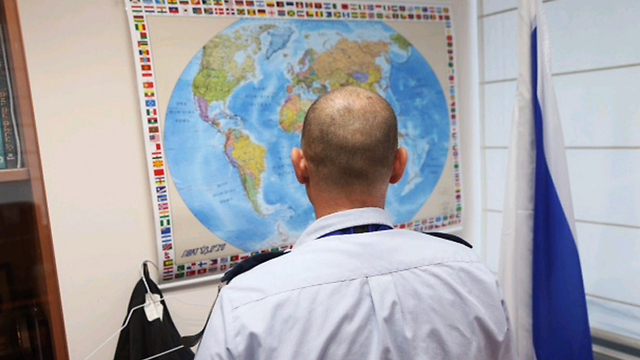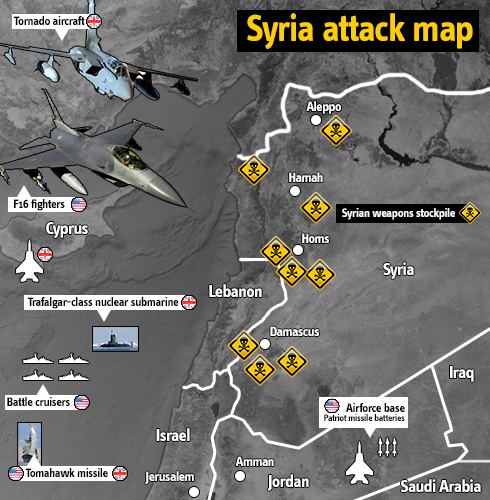Shai makes sure the pilots do not stray from the pre-approved flight route. Suddenly something draws her attention – a Syrian plane veers from its course suddenly. It turns west, to the general area of the Golan Heights.
Related stories:
- Though US postpones Syria strike, IDF prepared
- How possible US strike against Syria could unfold
- Russia says 'won't intervene' if Syria attacked
Shai calls senior officers, raises alert levels, reports to the pilot, and follows with set eyes over what could become a security incident. Eventually the Syrian aircraft returns to its original route and lands in its base; Shai, relieved, ends another long shift.
'Securing Israeli airspace'
This scenario did not happen in reality, but Sergeant Shai and her peers deal with similar events on a nearly daily basis. "Our job in the war room is to care for every aircraft on duty, from the moment it leaves post and until it returns," says Shai. "We secure Israeli airspace from foreign or hostile aircrafts. I've been up for 25 hours straight before, but the adrenaline helps you stay awake, and you forget you've been up for so long."

Lieutenant Colonel A (Photo: Motti Kimchi)
Captain Asher, a young officer from Lamdan, reveals the sheer volume of responsibility he and his peers carry: "An event that goes on for three minutes is later studied for three weeks," he said. "It's up to me to gather Intel, know who is going to fire what and from where. As an Intel Officer on land you get a few hours to warn about an incoming force; I get a few minutes."
Asher's commander, Lieutenant Colonel A., added: "We need to know everything quickly; if an aircraft veers, we need to know if it was under orders or flying solo. Same for drones; we give warning about not only the kind of vessel, but also about its speed and intent. Every two weeks we have a once in a lifetime incident."
From Iran to Libya
The force focuses not only on short term. Its members are constantly working on an updated assessment of the situation, in all directions, on every border of Israel. They examine weapon mobility of the Syrian army, follow the path of civilian aircrafts in the entire Mideast, and watch territorial airspaces of all Gulf States.

During the interview, muffled sirens are heard from the opposite side of the wall, a sign of another potential threat to Israeli skies. "We need every piece of information," Lieutenant Colonel A. says, "If an Israeli plane needs to hit a bunker, we need to know where that bunker is, what kind of armor it has, and which anti-aircraft weapons it carries," he says. "A plane is much more vulnerable than a tank that can hide in a ditch, for example. It depends on us for protection from enemy missiles and radars."
Protecting Mideast
Even before the possibility of a US strike in Syria presented itself, world headlines were buzzing over the S-300 surface-to-air missile system, purchased by the Soviet army. "Russian involvement makes it more and more likely that these systems will reach the area," the Lieutenant Colonel noted. "We need to learn the soft spots (of these surface-to-air missiles) before they reach the Mideast."
A. says the Israeli region may well see several systems from the S-300 kind. "These are missiles that can shoot down aircraft from 200 kilometers away, so if they're in southern Syria, they can hit all of northern Israel," he said, explaining the recent weapon developments can affect Israeli life and surely any wartime command.
"We’re picking up the pace to develop systems to fight these weapons and to prevent them from reaching Syria," A. says. "The Air Force is always working. We're committed to being alert and making an updated and accurate assessment for the decision makers."
- Receive Ynetnews updates
directly to your desktop















